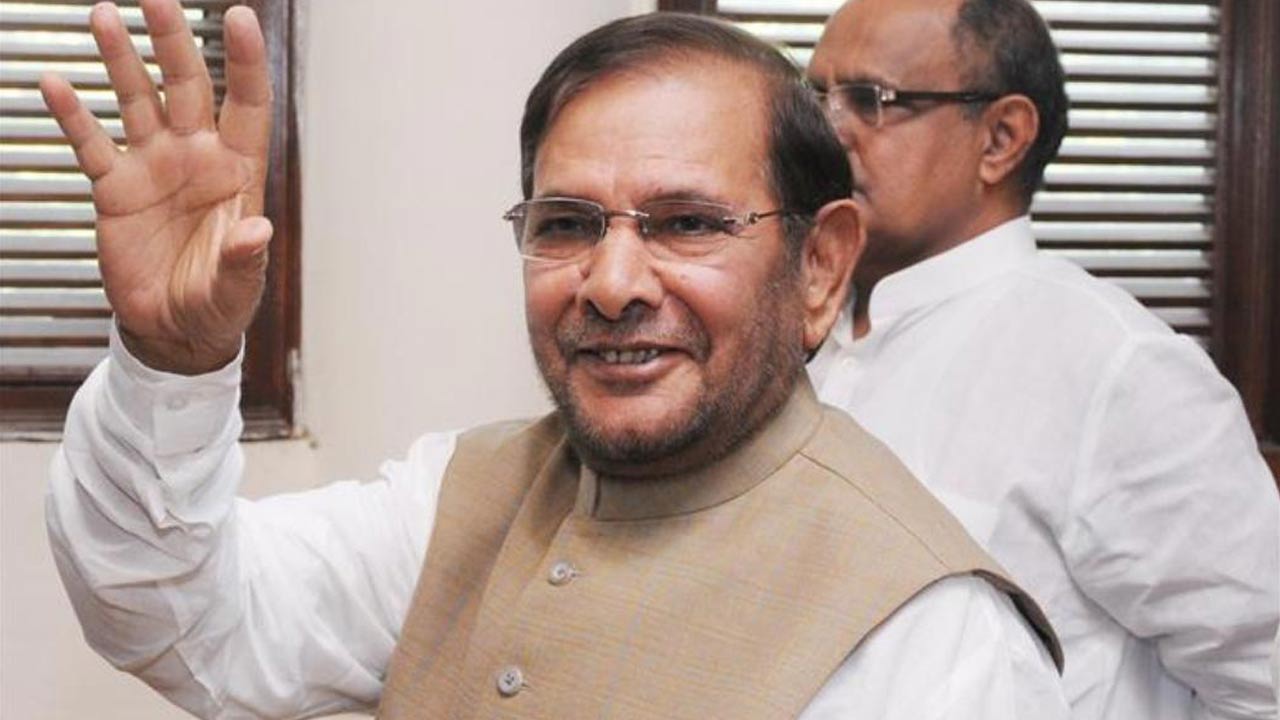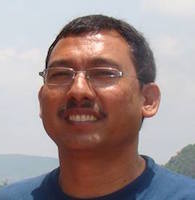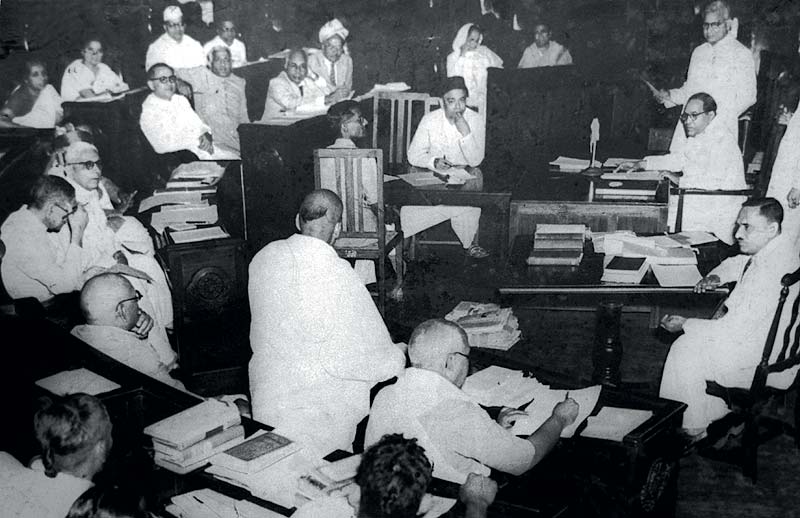The passing of Sharad Yadav, one of the Young Turks thrown up by Jaiprakash Narayan’s Sampoorna Kranti (Total Revolution) movement and the most vocal advocate of the Mandal Commission in the Cabinet of Vishwanath Pratap Singh, is a big jolt for the social justice and socialist movements in the country. He was first elected to the Lok Sabha in 1974 in a by-election from Jabalpur, Madhya Pradesh, and then again in the 1977 General Elections. He soon earned a reputation as a young leader with strong ideological commitments. After 1980, he could not enter Parliament for a few years despite his best efforts.
Though he was from Madhya Pradesh, he tried to make Uttar Pradesh the base of his politics. He was associated with the Lok Dal since the time of Chaudhary Charan Singh. But in 1989, when Vishwanath Pratap Singh launched a campaign for uniting the opposition and bringing the various splinter groups of the Janata Parivar together, Sharad Yadav joined forces with him and won the general elections held that year from Badaun in Uttar Pradesh. He was Minister for Textiles and Food in the National Front government.
It was in that period that Yadav emerged as a powerful leader and the most ardent advocate of the forces of social justice. When, on 7 August 1990, the then Prime Minister V.P. Singh announced in Parliament that his government had decided to accept the recommendations of the Mandal Commission, only two among the ministers from north India – Yadav and Ramvilas Paswan – came out in support of the measure. They aggressively silenced their opponents everywhere, from the streets to Parliament. V.P. Singh’s government collapsed, but its decision to accept the report of the Mandal Commission exposed the true loyalties of political leaders and parties across the board. Mulayam Singh Yadav joined hands with anti-Mandal Chandrashekhar and Devi Lal, which not only weakened the social-justice movement but also lent strength to the Hindutva forces in the times to come.
At the time, the Congress was keen to draw the savarnas into its fold and the north Indian backward-class leaders were not very vocal on the Mandal issue. Only two chief ministers stood by V.P. Singh – Bihar’s Lalu Prasad and Tamil Nadu’s M. Karunanidhi. At the time, V.P. Singh, Sharad Yadav and Ramvilas Paswan were the prime targets of the savarna opponents of reservations. They were abused and mocked. But till the very end, Sharad Yadav continued to lobby for the rights of the OBCs and the Dalits inside and outside of Parliament.
Starting in 1974, Sharad Yadav was elected seven times to the Lok Sabha. He is probably the only Lok Sabha member to have won from three different states. He began his political career as a popular anti-Emergency youth leader from Jabalpur, the constituency from which he went on to win the Lok Sabha election twice. In 1989, he entered Lok Sabha from Badaun in Uttar Pradesh and for the next four consecutive terms, from Madhepura in Bihar.
Sharad Yadav was a powerful orator and a mature and experienced leader who could have given a new direction to the movement of the backward classes. But despite all his qualities, the backward-class leaders of Uttar Pradesh and Bihar did not allow him to strike roots in their states. He was at one time the mentor to a considerable number of MPs and MLAs. Mulayam Singh Yadav did not allow him to contest from Badaun for the second time. In Bihar, Sharad Yadav won many times from Madhepura, but Lalu Prasad ensured that he didn’t become a state-level mass leader.

If Sharad Yadav could never get a firm foothold in the politics of Uttar Pradesh and Bihar, it was because of Lalu Yadav and Mulayam Singh Yadav, who were not comfortable with his high stature. Owing to his growing differences with the two Yadav leaders, Sharad Yadav joined hands with Nitish Kumar and became a part of the National Democratic Alliance (NDA). However, Nitish, too, never gave Sharad the respect he deserved. Later, their differences became so serious that Sharad Yadav was not renominated to the Rajya Sabha and he had to vacate the government accommodation at 7, Tughlaq Road, New Delhi, where he had been living for 22 years. The pain he felt while parting with a place that had become his home was very palpable.
In 2015, Nitish Kumar stitched a new alliance with the Congress and the RJD. It was said that Sharad Yadav had midwifed the alliance. Then, Nitish parted ways with the RJD. That worsened his relations with Sharad Yadav, who formed a new party with his supporters. But he was not cut out for such work, so he eventually merged his party with the RJD. Nitish’s supporters turned against him even more fiercely.
It is incredible yet true that despite being a minister, an MP and a leading politician for decades, Sharad Yadav did not own a single house anywhere in the country.
Now that Sharad Yadav has departed from this world, tears are being shed in his memory. But his friends at powerful places did not care to help such an important personality through his struggles in his final years. Nitish Kumar and his acolytes aimed several barbs at Sharad Yadav for merging his party with the RJD. But even the RJD did not help him in the evening of his life.
Sharad Yadav was a dynamic personality, a no-nonsense person who did not mince words. He abstained from sugarcoating. He was hopeful that the RJD would send him to the Rajya Sabha. But the party probably did not need him. Nitish Kumar and the RJD joined hands but Sharad Yadav became a persona non grata for both.
Sharad Yadav fought for the rights of the deprived, but within the politics of backward classes he was treated as a “drawing-room leader”. His stature was so high that the satraps lording over the politics of social justice in their respective areas saw him as a threat to their supremacy. It would be relevant to mention here that Sharad Yadav never faced corruption charges as an individual.
Sharad Yadav was among the leaders who initiated the demand for a caste census. Today, many OBC leaders have been raising this demand but they don’t have the ideological strength of Yadav. Many are claiming that Yadav was not a mass leader, but this is a fallacy. He was elected to the Lok Sabha numerous times, and from the time of the JP Movement up to the prime ministership of V.P. Singh, he was the senior-most among his contemporaries. When he spoke, the Parliament listened attentively.
The way Sharad Yadav was shunned and ignored in the evening of his life shows how ideologically bankrupt the leaders representing the forces of social justice in India are, and how their personal aspirations guide them. Sharad Yadav was a pillar of social justice. Even when he was the convener of the NDA and a minister in the coalition government, he did not give up his basic ideology.
Mulayam Singh and Lalu Yadav did not want Sharad Yadav to acquire an independent status in their states. They were fearful of Sharad Yadav from the time of VP Singh’s prime ministership, when Sharad Yadav was a powerful member of the Cabinet. But after the fall of that government, the Janata Parivar disintegrated at the national level and clans from a faction of the Janata Parivar established their monopoly on power in Uttar Pradesh and Bihar.
Sharad Yadav was a self-respecting leader who never compromised his principles. Pursuing the politics of socialism, he ended up like Surendra Mohan and Madhu Limaye, leaders who had given their everything to promote their ideology, while those who dominated the politics of Uttar Pradesh and Bihar swearing by socialism on the microphone not only promoted their own dynasties but also managed to mint tons of money.
Be that as it may, in the passing away of Sharad Yadav, the country has lost an exemplary fighter for social justice and a crusader against communalism. His meaningful and positive role in Indian politics would be remembered forever.
(Translated from the original Hindi by Amrish Herdenia)
Forward Press also publishes books on Bahujan issues. Forward Press Books sheds light on the widespread problems as well as the finer aspects of Bahujan (Dalit, OBC, Adivasi, Nomadic, Pasmanda) society, culture, literature and politics. Contact us for a list of FP Books’ titles and to order. Mobile: +917827427311, Email: info@forwardmagazine.in)





